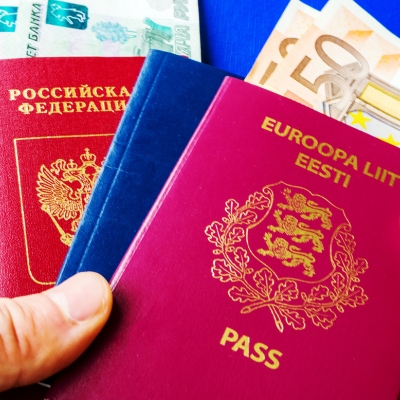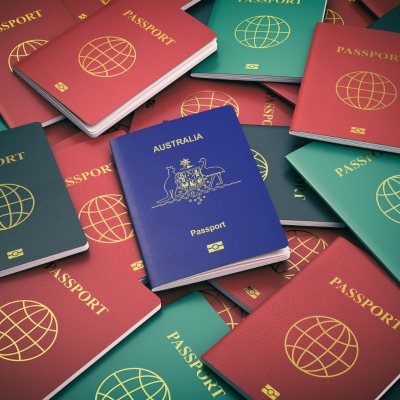Adverts
Citizens around the world have surnames with different origins, due to the genealogy of their families and the origin of their ancestors. In this context, a common question is whether it is possible to obtain dual citizenship using your surname and how it works.
In general, there are specific parameters that regulate this issue, but it is important to understand that each nation has specific legislation regarding the naturalization of its inhabitants. Therefore, you must research in depth and consider the other aspects requested by the authorities. Find out more information and understand how it works below.
Adverts
Is it possible to obtain dual citizenship by surname?
Firstly, it is not possible to obtain dual citizenship just by surname. This happens because the right to citizenship is not extended to all descendants of a native just because they are from the same family.
Read too: Do you have a clone? Find out with these apps
Adverts
Generally, the granting of this citizenship by consanguinity is limited to the second generation after the naturalized person, specifically children. Furthermore, if all countries were to allow people to become citizens based on the origin of their surnames, it would be impossible to control the migration flow.
As a consequence, local authorities would not be able to keep records of their citizens, resources would be limited given the volume of new inhabitants and other bureaucratic problems would also occur. Precisely because of these risks there are specific processes for obtaining citizenship.
Despite this, dual citizenship by descent is a viable option, because many consulates and official bodies use the Genealogy parameter to parse the request. It's much easier to obtain citizenship if you have a father or mother who are native to the region, but that doesn't mean that your surname doesn't help in the process.
Even though it does not guarantee 100% citizenship approval, the surname helps in the process. Therefore, it is essential to know what documents are required, types of citizenship and how each one's bureaucracy works.

Image: Reproduction/Pexels
What are the necessary procedures to obtain citizenship in the countries?
As previously mentioned, it depends on the type of citizenship you want to obtain and also the country in which you are applying. Check out the documents and requirements requested by the main countries with migratory flow in the world:
1. United States of America
- Be at least 18 years old when filling out the application, as naturalization is only available to adults;
- Be a legal permanent resident for the last three years in the United States or at least five years, depending on each situation, or be married to a United States citizen;
- Have continuous residence and presence in the United States of America;
- Be able to read, speak and write in English, at least at a basic level;
- Have a good moral character, no criminal record;
- Have knowledge and understanding of the history of the United States and the workings of government;
- Demonstrate loyalty to the Constitution of the United States;
- Be willing to take the oath of allegiance and integrate as an active citizen in the country;
- Complete application form N-400;
- Present birth certificate or marriage certificate to a US citizen, if applicable;
- Present your diploma, academic transcript and bank statement.
2. Portugal
- Have lived legally in Portugal for at least 3 years or;
- Being the son or daughter of a Portuguese person, or;
- Be married or live in a stable relationship with a Portuguese person for more than 3 years, or;
- Present the birth certificate, proof of residence with address in Portugal;
- Present a 3×4 photo;
- Present proof of payment of specific citizenship application fees;
- Present documents from a Portuguese parent or Portuguese spouse, if any;

Image: Reproduction/Pexels
3. Spain
- Be residing in Spain for a minimum period of 2 years or;
- Be married to a Spaniard for at least 1 year or;
- Be the son or grandson of a Spanish citizen who has not been able to choose nationality for at least 1 year or;
- Be born in Spain, but have not yet applied for nationality of origin for at least 1 year or;
- Be a widow or widower of a Spanish citizen for at least 1 year, or;
- Present your passport;
- Present a DELE A2 Spanish certificate;
- Present a birth certificate from the country of origin, apostilled and translated;
- Present a CCSE knowledge certificate;
What types of nationality are granted?
There are different types of citizenship and ways to be naturalized in a region that is not necessarily your region of origin. Currently, the following possibilities are considered internationally:
- Citizenship by jus sanguinis: is based on descent and blood relationship, and is granted upon proof of these family ties.
- Citizenship by jus solis: granted to those born in the country's territory, regardless of the origin of their ancestors.
- Citizenship by regular residence: refers to the naturalization of permanent residence of individuals who were previously tourists or exchange students, for example.
- Citizenship by marriage: involves obtaining citizenship through marriage with a local citizen.
- Citizenship for investors: in some regions, such as Malta, citizenship is granted to investors who contribute financial investments in the country.
So, did you learn how dual citizenship works?
Although having a local surname is not a gateway to citizenship in the country, it is one of the criteria evaluated through genealogical research. However, there is no point in filing the request with just your full name, because you need to know the steps and bureaucratic procedures in depth.




